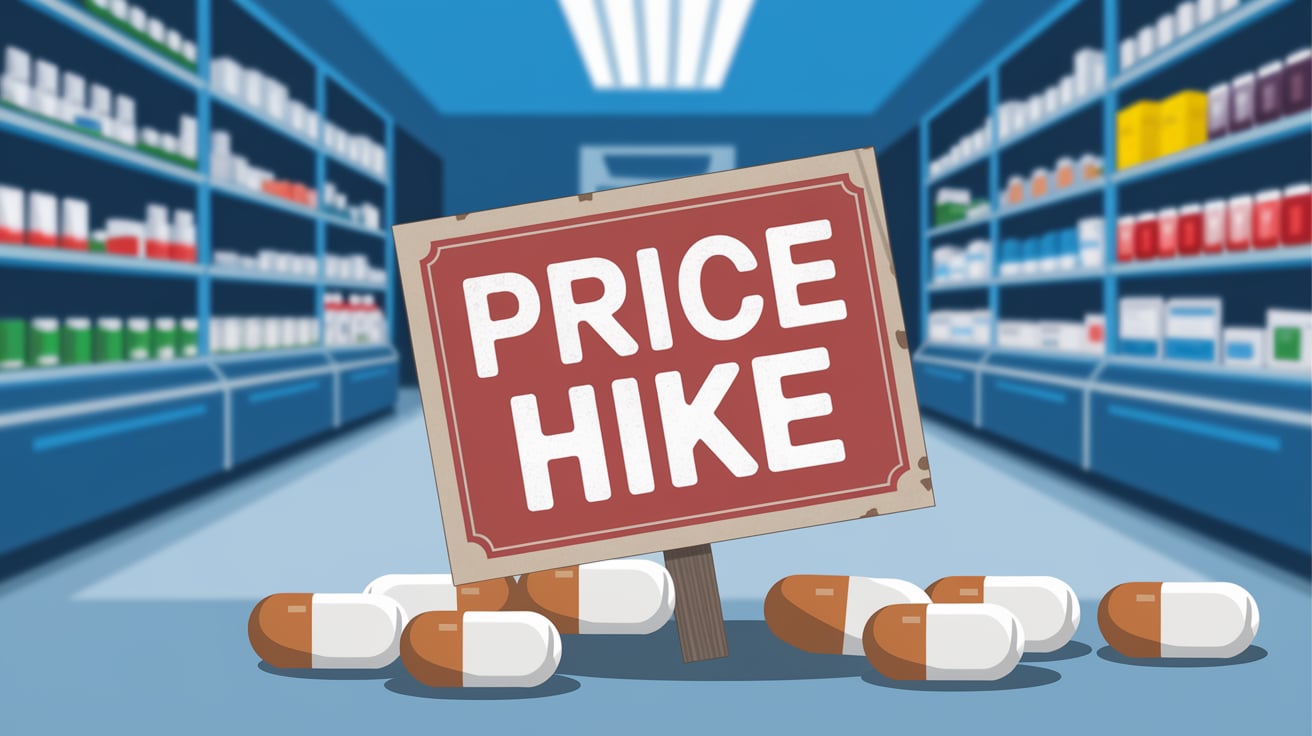Eli Lilly & Co. (LLY) recently unveiled new pricing and packaging for its weight-loss drug Zepbound, aiming to broaden access for patients with obesity. However, the price increase under Lilly’s savings-card program has left some patients feeling the drug is now even further out of reach.
Under the revised savings-card program for Zepbound, the minimum cost for a one-month supply has risen to $650, up from the previous $550. The company’s announcement highlighted new single-dose vials for Zepbound, priced at $399 and $549 for the two lowest doses, but did not mention the increase for the savings card.
According to a Lilly spokesperson, this price hike will help sustain the program’s longevity as more commercially insured individuals gain coverage for Zepbound and become eligible to pay as little as $25 per month. For those already enrolled in the savings-card program, the original $550 pricing will remain effective until the end of this year.
Pricing Confusion and Patient Frustration
Despite assurances, some patients have already experienced unexpected price increases. Eli Greenberg, a Minneapolis resident, encountered a significant pricing glitch while filling his prescription for Zepbound at Amazon Pharmacy (AMZN). Initially using the savings card to access lower doses at $550 each, Greenberg was surprised to find the cost had jumped to $650.
Greenberg, who has employer-sponsored health insurance that does not cover Zepbound, expressed frustration over the lack of clarity regarding the price increase. He pointed out the discrepancy between the healthcare community’s acknowledgment of the life-saving potential of anti-obesity medications and the persistent lack of insurance coverage for such drugs.
An Amazon representative confirmed that some customers experienced incorrect pricing and assured they were proactively offering reimbursements and honoring the original price for those with Zepbound savings cards on file.
Community Reaction and Coverage Gaps
The price hike has sparked a wave of discontent across online forums, where users shared experiences similar to Greenberg’s. Many expressed frustration over the sudden increase, with one Reddit user stating, “At $650, they just priced a lot of people out.”
Lilly acknowledged that cost and lack of insurance coverage remain significant barriers for many patients. Only about one-third of employer plans currently cover GLP-1 drugs for both diabetes and weight loss, up from 26% last year, according to the International Foundation of Employee Benefit Plans. This coverage gap continues to pose challenges for broader access.
James Zervios, COO of the Obesity Action Coalition, described the new single-dose vials as a “small positive step” but highlighted the ongoing issues in insurance coverage for obesity medications. “As often is the case with obesity care coverage, we sometimes take two steps forward and one step back,” he noted.
Potential Benefits of Single-Dose Vials
Caroline Apovian, co-director of the Center for Weight Management and Wellness at Brigham and Women’s Hospital, sees the introduction of single-dose vials as a notable move, potentially reducing costs associated with injector pens. This could particularly benefit patients on Medicare, who do not qualify for savings cards.
However, Apovian emphasized that a more comprehensive solution is needed at the government level to improve access for the 42% of Americans suffering from obesity. The new vials, while less expensive, require patients to administer the medication using needles and syringes, which some find inconvenient compared to the injector pens.
Lilly will continue to evaluate market conditions and patient needs to determine the most effective ways to ensure affordable access to Zepbound, a spokesperson said. Meanwhile, Lilly shares have surged 62% year-to-date, outperforming the S&P 500’s 16.7% gain.
Key Takeaways
- Eli Lilly raised the price for its Zepbound savings card program, pushing costs to $650 per month for some patients.
- While the company aims to sustain the program and expand access, patients are facing confusion and frustration due to unexpected price hikes.
- Insurance coverage remains a significant barrier, with only one-third of employer plans covering weight-loss medications.
- New single-dose vials could reduce costs but require more traditional administration methods, adding a new layer of complexity for patients.
Conclusion
Lilly’s decision to adjust its savings-card pricing has sparked concerns among patients who lack coverage, highlighting the broader issue of inadequate insurance for obesity treatments. While the introduction of single-dose vials offers a step toward affordability, the path to comprehensive coverage remains fraught with challenges. Investors and stakeholders will be closely monitoring Lilly’s next moves and any regulatory changes that might impact the accessibility and affordability of weight-loss medications.
















